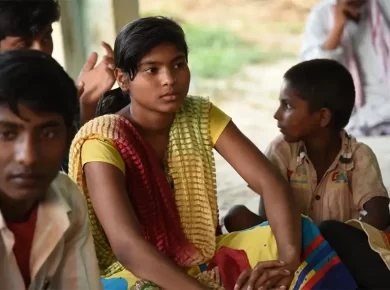Maternal / Neo-Natal Health
Lancet Report on Maternal Health
Nearly 1/4th of babies worldwide are still delivered in the absence of a skilled birth attendant. 1/3rd of the total maternal deaths in 2015 happened in two countries: India and Nigeria. WHO, India’s MMR stands at 178 presently but as per MDG mandate India needs to further reduce it to 103.
Reasons for High MMR in India
- Low Institutional delivery rate – lack of facilities, will, awareness & orthodoxial stigmas attached
- Women not getting Antenatal Care – 34 % did not receive an ante-natal check- up for births
- Postnatal care is grossly deficient
- Teenage pregnancy and their risk of dying – 34 % married under the age of 18 despite the Child Marriage Restraint Act, which multiplies the risk of dying
- Women lack awareness of the importance of pregnancy care and delivery in healthcare facilities
- Women’s lack of making decision – Patriarchal mindset + Lack of awareness of location of health services
- Cost factor – direct fees as well as the cost of transportation, drugs and supplies
- The poor quality of services, including poor treatment by health providers
Solutions
- An improved, accountable health care system at primary level
- Make the antenatal, intra-natal & postnatal services available to women located close to them
- Ensure delivery by skilled attendant nurses or doctors
Janani Suraksha Yojana – world’s biggest conditional cash-transfer scheme, aimed to promote institutional delivery. The cash incentive reduces financial barriers to accessing institutional delivery.
- 22% increase in women delivering in government hospitals between 2004 and 2014 – NSSO Data
- It led to increase in utilisation of all three maternal healthcare services – (antenatal care, Safe Delivery, Postnatal Care)
Also read: Low Female Labour Force Participation + Wage Disparity + Women in Combat Role
Pradhan Mantri Surakshit Matritva Abhiyan – assured & quality antenatal care, free of cost, universally to all pregnant women
Medical Termination of Pregnancy (Amendment) Bill 2014
Recently, Supreme Court of India declined the plea of a woman to abort her foetus detected with Down syndrome. The whole issue set a debate about a woman’s right to choice over her body and termination of foetus, which is considered as a life after a certain period of pregnancy in Medical Termination of Pregnancy Act 1971.
Medical Termination of Pregnancy Act 1971, allows a woman to terminate her foetus till 20th week of pregnancy. To detect any abnormality in foetus, a pregnant woman can undergo the medical test only after 18-week period of her pregnancy. However, the report of the test itself can take 2-3 weeks to arrive; meanwhile, the pregnant women would have crossed the time limit allowed to opt for abortion.
However, in certain exceptional circumstances, court relaxes the aforesaid time period and allows termination of pregnancy only if the foetus poses danger to the woman’s life or is detected with an abnormal deformity.
Due to rigid framework of the Act and myriad aspects of social stigma attached to the issue, around 10 women every minute in India die due to pregnancy-related complications.
Medical Termination of Pregnancy (MTP) (Amendment) Bill 2014
- intended to extend the legal limit for abortion from the present 20 weeks to 24 weeks
- will also allow for abortions-on-demand up to 12 weeks
- Takes into account a woman’s choice and autonomy over her body
- would cut the role of judiciary in case of any abnormality found in the foetus after the 20 week time period and would authorise the health care provider to terminate pregnancy
- amended the definition of ‘termination of pregnancy’ by differentiating the medical and surgical methods – would allow women to use and procure abortion-related medicines
In the proposed amendment, all the stakeholders must be consulted so that sex selective abortion and high mortality rate can be curtailed.
Also need of the hour is to look at the proposed law through a broader lens, where the right to choice of women over her body and the right of the foetus to be born, would be justified.
For more updates, explore the Social Issues. Feel free to share your thoughts and comments.
If you’re passionate about building a successful blogging website, check out this helpful guide at Coding Tag – How to Start a Successful Blog. It offers practical steps and expert tips to kickstart your blogging journey!








1 comment
very good effort